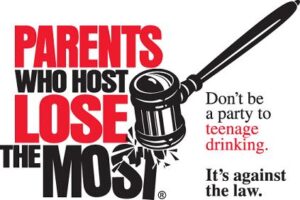
If you or someone you know is struggling with a drug or alcohol problem, help is available! You have options, including counselors, doctors, and in-patient treatment centers. Reaching out for help is the most important first step.
Signs of a Substance Use Disorder or Addiction
- Changes in appetite or sleep patterns
- Deterioration of personal hygiene or appearance
- Frequent, unexplained bruises or other injuries
- Skipping class or declining grades
- Sudden change in relationships and friends
- Missing money / stealing
- Sudden mood changes – irritability or outbursts
- Appearing withdrawn, anxious or paranoid
Resources
- Common Places Your Teen Could be Hiding Drugs https://www.getsmartaboutdrugs.gov/content/hiding-places
- Identifying Drugs https://www.getsmartaboutdrugs.gov/drugs
- How to Identify Drug Paraphernalia https://www.getsmartaboutdrugs.gov/content/how-identify-drug-paraphernalia
- Talking to Your Child When You Suspect Drug Use http://www.getsmartaboutdrugs.gov/content/talking-your-child-when-you-suspect-drug-use
- Parent Talk Kit – http://drugfree.org/article/talk-with-your-kids/
- Text Messaging: Lost in Translation (video) https://www.dea.gov/media.shtml
- Signs of Drug Use https://www.getsmartaboutdrugs.gov/family/signs-of-drug-use
- Consequences https://www.justthinktwice.gov/consequences
- What’s Happening at Your Child’s School https://www.getsmartaboutdrugs.gov/family/whats-happening-in-your-childs-school
- True Stories https://www.getsmartaboutdrugs.gov/consequences/true-stories
- How Drug Alter Brain Development and Affect Teens https://www.getsmartaboutdrugs.gov/consequences/how-drugs-alter-brain-development-and-affect-teens
- Drugged Driving – What You Should Know https://www.getsmartaboutdrugs.gov/family/drugged-driving–what-you-should-know
Facts and Stats https://www.justthinktwice.gov/facts
Tips for Parents - Teen Parties
 Know the facts
Know the facts- Tips for when your teen hosts a party
- Tips for when your teen attends a part
- Legal, health, and safety issues
- Party tips
- What to do if there’s been a party in your home
- What to do if you’re going to be out of town
- What to do if your teen is going to a party
- Texting tips – tips for texting your teen during parties
- Before and during the event
- Early evening
- Late evening
Helpful Resources
Get Help with Substance Use, Problem Gambling, or Mental Health
Need Help Talking to Your Child About Drug Prevention
Drug Free Northern Michigan
The Medicine Abuse Project/Partnership for Drug-Free Kids
– Parent Drug Guide
– Prevention Tips for Every Age
– How to Address Underage Drinking
– How to Talk About Marijuana
– All About the Teen Years
– Tips for Talking and What to Say to Prevent Medicine Abuse
– How Does Prescription Medicine Abuse Lead to Heroin Use?
Talk. They Hear You.
Get Smart About Drugs
National Institute of Drug Abuse (NIDA)
Drunk/Impaired Driving
Driving after drinking is deadly, yet it continues to happen. Every day, about 32 people in the United States die in drunk-driving crashes — that’s one person every 45 minutes. Annually, drunk driving crashes cost the US $44 billion. Drunk driving crashes are preventable!
HOW DOES ALCOHOL IMPACT OUR BRAIN/BODY?
Alcohol is a substance that reduces the function of the brain, impairing thinking, reasoning and muscle coordination. All these abilities are essential to operating a vehicle safely.
Alcohol is absorbed directly through the walls of the stomach and small intestine. Then it passes into the bloodstream where it accumulates until it is metabolized by the liver. A person’s alcohol level is measured by the weight of the alcohol in a certain volume of blood. This is called Blood Alcohol Concentration, or BAC. At a BAC of .08 grams of alcohol per deciliter (g/dL) of blood, crash risk increases. Because of this risk, it’s illegal in all 50 states, the District of Columbia and Puerto Rico to drive with a BAC of .08 or higher, except in Utah where the BAC limit is .05.
THE EFFECTS OF BLOOD ALCOHOL CONCENTRATION
BLOOD ALCOHOL CONCENTRATION (BAC) IN G/DL ON DRIVING | TYPCIAL EFFECTS | PREDICTABLE EFFECTS |
.02 |
|
|
.05 |
|
|
.08 |
|
|
.10 |
|
|
.15 |
|
|
Table describing BAC and typical effects of various BAC levels
THE CONSEQUENCES OF DRINKING AND DRIVING
Drinking and driving is a dangerous crime. Those caught drinking and driving face jail time and many legal fees. On average, a DUI can set you back $10,000 in attorney’s fees, fines, court costs, lost time at work, higher insurance rates, car towing, and more. And, drinking and driving can result in losing your driver’s license and your car, further impacting your future.
For more information about Michigan laws regarding drinking and driving visit: https://www.michigan.gov/msp/divisions/ohsp/safety-programs/impaired-driving/impaired-driving-law
BE A RESPONSIBLE DRIVER: IF YOU ARE DRINKING, DO NOT DRIVE.
The most effective way to stop drunk driving is to prevent it from happening. We all share the roads and must all work together to keep them safe. Making responsible decisions not only ensures our safety, but the safety of others on the road.
OTHER TIPS TO PREVENT DRUNK DRIVING AND KEEP YOU AND OTHERS SAFE:
- Plan your safe ride home before you start the party, choose a non-drinking friend as a designated driver.
- If someone you know has been drinking, do not let that person get behind the wheel. Take their keys and help them arrange a sober ride home.
- If you drink, do not drive for any reason. Call a taxi, a ride-hailing service, or a sober friend.
- If you’re hosting a party where alcohol will be served, make sure all guests leave with a sober driver.
- Never feel pressured to drink alcohol.
- Always wear your seat belt — it’s your best defense against impaired drivers.
- If you see an impaired driver on the road, contact local law enforcement. Your actions could help save someone’s life.
Want to calculate your BAC, use the Virtual Bar: https://www.responsibility.org/drink-responsibly/bac-calculator/
For other information on drinking and driving visit: https://www.nhtsa.gov/risky-driving/drunk-driving
Prescription Drugs
Marijuana




Marijuana Concentrates


Publications (Marijuana)


Synthetic Drugs/Emerging Drugs








▪Fentanyl Fact Sheet
▪Xylazine Fact Sheet
Heroin

Cocaine

Inhalants

Methamphetamine

Ecstasy/MDMA

Amphetamines

Take Back Your Meds
Disposing of your medicines at a local pharmacy or law enforcement office can help prevent prescription drug abuse. By properly disposing unused, unwanted, or expired medications you can ensure medicines will not be stolen from the garbage, will not enter our environment, and prevent abuse and overdoses at home.

